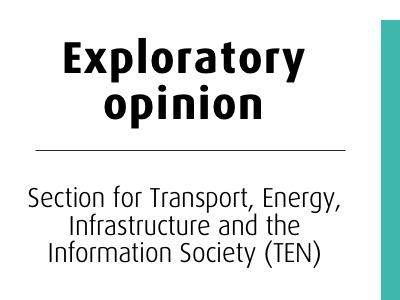European Economic
and Social Committee
Universal Service rights in the electronic communications in the European Union
Background
In the framework of the provision of electronic communications networks and services to end-users, the 2002 Universal Service Directive provided by law the availability of good-quality publicly available services, dealing in particular with circumstances in which the needs of end-users were not satisfactorily met by the market. Specific provisions aimed, for example, to facilitate access for disabled end-users or emergency services.
The EESC exploratory opinion will consider the impact of technological change on people and will assess whether it is necessary to modify the existing universal service rights or insert new ones into the European Electronic Communications Code. The Code has gathered all provisions in the field since 2018.
The opinion will also look into the "universal broadband service", where broadband services would be available everywhere in the EU, with a speed and quality in line with the current technology.
Key points
The EESC:
- considers that the lack of digital skills and price constitutes a barrier to internet access, creating a problem of digital exclusion that drives social and economic inequalities;
- favours the binding provision of universal access to an internet connection of at least 100 Mb/s for the effective use of rapidly developing basic digital services, which should be revised along with technical developments;
- recommends that the EU Member States designate universal service operators in each country and support universal connectivity when market forces are not sufficient;
- believes that Internet access should be considered as a fundamental right, in line with the principles of the European Pillar of Social Rights;
- as the infrastructure investment needs are considerable, calls for consideration to be given to regulations that require platforms generating large amounts of data, especially large tech companies, to contribute to the cost of maintenance and development of the network and making sure it is secure.
Additional information
Section: Transport, Energy, Infrastructure and the Information Society (TEN)
Opinion number: TEN/834
Opinion type: Exploratory opinion requested by the Commission
Rapporteur: Mateusz Szymański (Group II - Poland)
Date of adoption by section: 18 July 2024
Result of the vote: 73 in favour, 0 against, 2 abstentions
Date of adoption in plenary: 18-19 September 2024
Result of the vote: 174 in favour, 0 against, 1 abstention
Contact
Marco Pezzani
Press Officer
Tel.: +32 2 546 9793 | Mob: +32 470 881 903
E-mail: marco.pezzani@eesc.europa.eu
Alessandro Rizzi
Administrator
Tel.: +32 546 8679
E-mail: alessandro.rizzi@eesc.europa.eu
